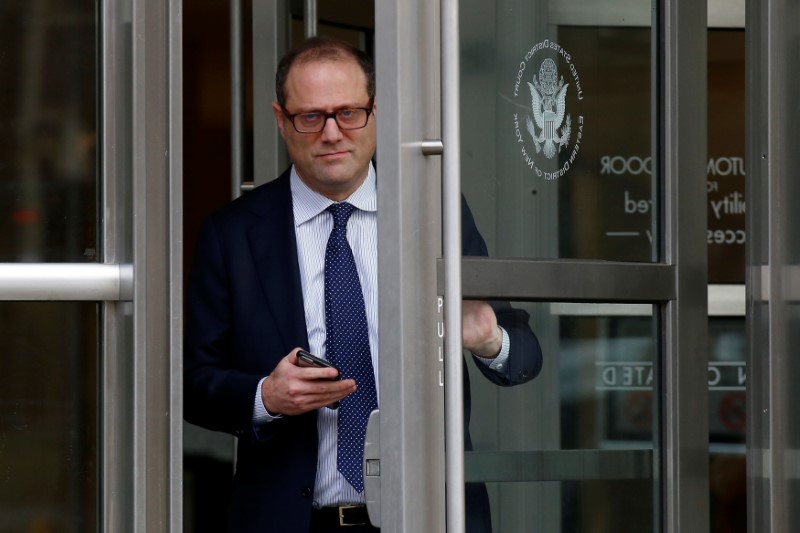By Brendan Pierson
NEW YORK (Reuters) - A U.S. judge on Friday ordered lawyers defending Platinum Partners founder Mark Nordlicht in a $1 billion fraud case not to communicate with U.S. government witnesses or their lawyers, after prosecutors claimed Nordlicht's lawyers tried to intimidate a key witness.
U.S. District Judge Dora Irizarry in Brooklyn said at a court hearing that if Nordlicht's lawyers contacted government witnesses or their lawyers again, she would sanction them and jail Nordlicht, who is now free on bail.
William Burck, one of Nordlicht's lawyers, declined to comment after the hearing.
Prosecutors charged Nordlicht and six other executives at the hedge fund firm in December with running a $1 billion "Ponzi-like" fraud in which they overvalued assets and selectively paid some investors ahead of others. All pleaded not guilty.
Irizarry's order on Friday stemmed from a letter in which Nordlicht's lawyers expressed their understanding that a former Platinum employee was a key government witness, identified in other court papers only as "CW-1."
In the letter, addressed to the former employee's lawyer, Nordlicht's lawyers said they found "implausible" an FBI agent's claim, in an affidavit seeking a warrant to search Platinum's office last year, that the witness told him Platinum had "profited greatly from its fraudulent evaluations."
Nordlicht's lawyers said the former employee would incriminate himself in that manner only if he had reached a deal with prosecutors. His new employer would have been required to disclose such a deal to investors but never did, Nordlicht's lawyers said.
In an Aug. 9 court filing, prosecutors called the letter an attempt to confirm that the former Platinum employee was CW-1, and a "veiled threat" to contact his subsequent employer.
In a filing the following day, Nordlicht's lawyers called that claim "baseless," saying they wanted only to find out what CW-1 really told the FBI agent, so they could move to suppress evidence from the search if the agent's affidavit turned out to be inaccurate.
Irizarry said Friday she was not persuaded by that explanation.
"I am frankly appalled at the fact that such a letter was written and sent to this person's attorney," she said.

Before the criminal investigation, Platinum was known for producing exceptionally high returns - about 17 percent annually in its largest fund. The company's funds have been placed under the control of a court-appointed receiver.